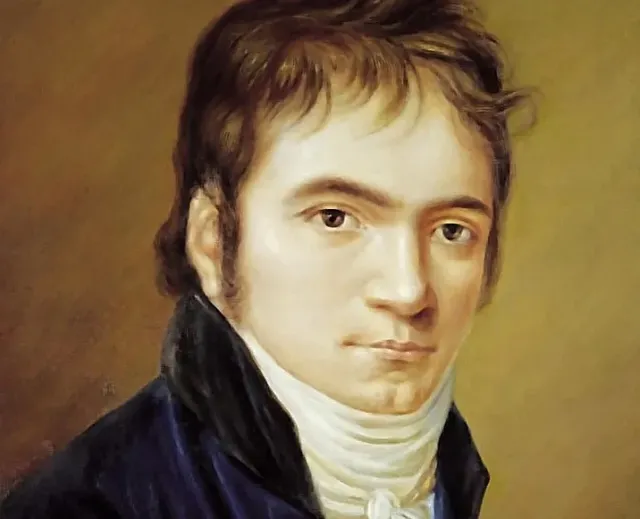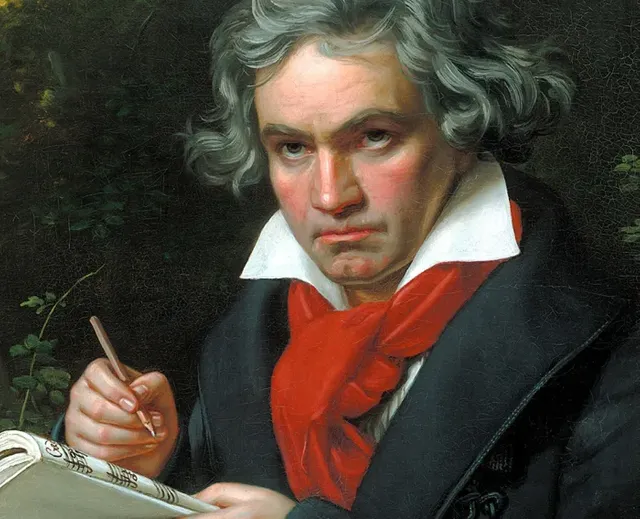Ludwig van Beethoven
Ludwig van Beethoven was a German pianist and composer widely considered to be one of the greatest musical geniuses of all time. His innovative compositions combined vocals and instruments, widening the scope of sonata, symphony, concerto and quartet. He is the crucial transitional figure connecting the Classical and Romantic ages of Western music. Beethoven’s personal life was marked by a struggle against deafness, and some of his most important works were composed during the last 10 years of his life, when he was quite unable to hear. He died at the age of 56.

Ludwig Van Beethoven was born on or about December 16, 1770, in the city of Bonn in the Electorate of Cologne, a principality of the Holy Roman Empire. Although his exact date of birth is uncertain, Beethoven was baptized on December 17, 1770. As a matter of law and custom, babies at the time were baptized within 24 hours of birth, so December 16 is his most likely birthdate.However, Beethoven himself mistakenly believed that he was born two years later, in 1772, and he stubbornly insisted on the incorrect date even when presented with official papers that proved beyond any reasonable doubt that 1770 was his true birth year.
Beethoven won many patrons among the leading citizens of the Viennese aristocracy, who provided him with lodging and funds, allowing Beethoven, in 1794, to sever ties with the Electorate of Cologne. Beethoven made his long-awaited public debut in Vienna on March 29, 1795.Although there is considerable debate over which of his early piano concerti he performed that night, most scholars believe he played what is known as his "first" piano concerto in C Major. Shortly thereafter, Beethoven decided to publish a series of three piano trios as his Opus 1, which were an enormous critical and financial success.In the first spring of the new century, on April 2, 1800, Beethoven debuted his Symphony No. 1 in C major at the Royal Imperial Theater in Vienna. Although Beethoven would grow to detest the piece — "In those days I did not know how to compose," he later remarked — the graceful and melodious symphony nevertheless established him as one of Europe's most celebrated composers.
As the new century progressed, Beethoven composed piece after piece that marked him as a masterful composer reaching his musical maturity. His Six String Quartets, published in 1801, demonstrate complete mastery of that most difficult and cherished of Viennese forms developed by Mozart and Haydn.Beethoven also composed The Creatures of Prometheus in 1801, a wildly popular ballet that received 27 performances at the Imperial Court Theater. It was around the same time that Beethoven discovered he was losing his hearing.

Ludwig van Beethoven is widely considered one of the greatest, if not the single greatest, composer of all time. Beethoven's body of musical compositions stands with William Shakespeare's plays at the outer limits of human brilliance. And the fact Beethoven composed his most beautiful and extraordinary music while deaf is an almost superhuman feat of creative genius, perhaps only paralleled in the history of artistic achievement by John Milton< writing Paradise Lost while blind. Summing up his life and imminent death during his last days, Beethoven, who was never as eloquent with words as he was with music, borrowed a tagline that concluded many Latin plays at the time. Plaudite, amici, comoedia finita est, he said. "Applaud friends, the comedy is over."
https://www.biography.com/musician/ludwig-van-beethoven
Congratulations @amadeusalaturca! You have completed the following achievement on the Steem blockchain and have been rewarded with new badge(s) :
You can view your badges on your Steem Board and compare to others on the Steem Ranking
If you no longer want to receive notifications, reply to this comment with the word
STOPVote for @Steemitboard as a witness to get one more award and increased upvotes!